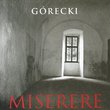| All Artists: Johann Sebastian Bach, Angela Hewitt Title: Bach: The Toccatas Members Wishing: 1 Total Copies: 0 Label: Hyperion UK Release Date: 8/13/2002 Album Type: Import Genre: Classical Styles: Chamber Music, Historical Periods, Classical (c.1770-1830) Number of Discs: 1 SwapaCD Credits: 1 UPC: 034571173108 |
Search - Johann Sebastian Bach, Angela Hewitt :: Bach: The Toccatas
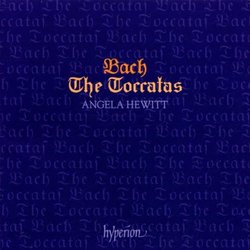 | Johann Sebastian Bach, Angela Hewitt Bach: The Toccatas Genre: Classical
A toccata--from the Italian word meaning "to touch"--was originally a glorified keyboard warm-up, in which scales and arpeggios were tossed off with improvisatory abandon. But as Angela Hewitt shows, Bach's youthful forays... more » |
Larger Image |
CD DetailsSynopsis
Amazon.com A toccata--from the Italian word meaning "to touch"--was originally a glorified keyboard warm-up, in which scales and arpeggios were tossed off with improvisatory abandon. But as Angela Hewitt shows, Bach's youthful forays into this genre were finely wrought gems, masterpieces in miniature. This dazzling CD matches the extraordinarily high standards she has set herself in the complete keyboard Bach she is building up year by year. Her touch is springy and muscular, her pulse rock-steady; the more anarchic Bach's fancy becomes, the more rigorously she controls its expression. Taking her cue from the absence of autograph manuscripts, she puts these works into a satisfying running order, so we can savor them as we would at a recital. The liner notes are--as usual with this coruscating communicator--a performance in themselves. Musical commentary is seldom so fresh, or so illuminating for those who want to follow in her footsteps. And yes, she makes a brilliant case for the piano in Bach: in these 65 glorious minutes, there's not one dull moment. --Michael Church Similarly Requested CDs
|
CD ReviewsHewitt tames the Toccatas Alan Lekan | Boulder, CO | 08/16/2005 (4 out of 5 stars) "Many know the famous story of how an eager, young Bach journeyed 10 days by foot to a distant village to hear the great organist Buxtehude, staying many months longer than he was given permission. It is fortunate probably that he stayed so long to learn from this master - for such early yet luminous works like the toccatas here clearly show the influence of this virtuositic organist and his free, improvisatorial manner of composing (termed "stylus fantasticus"). In her abundant and well-written liner notes, Hewitt quotes one authority on this style: "It is the most free and unrestrained method of composing; it is bound to nothing, neither to words nor to a melodic subject; it was instituted to display genius and to teach hidden design of harmony and the ingenious composition of harmonic phrases and fugues." While not purposely written as a grouping or teaching tool, these seven so-called Toccatas were assembled together based on these characteristics. They are free displays of virtuosity with daring runs of scales, arpeggios and the like - music full of vitality yet free of form for the most part. The 2005 Gramophone Guide gave this CD the top "Gold Star" rating (3/3 stars) and concluded: "Her performances could hardly be more stylish or impeccable, more vital or refined. Hewitt's playing is personal and characterful without resorting to self-serving or distorting idiosyncracy." Moreover, the Penguin Guide summarized this recording this way: "We have no hesitation in declaring this the most stimulating and rewarding CD of these complex and episodic works on any instrument, consistently showing Bach's youthful explorations at their most stimulating." Indeed, there is much variety, inventiveness and drama in this music that Angela Hewitt brings out to the fullest - from the songful and even contemplative slower interludes to rippling demisemiquaver scales that open some pieces to the powerful, complex fugues. Perhaps the richest aspect of Hewitt's playing here is her ability to skillfully and subtly shape the repeating episodes within the fugues by her nuances of color and dynamics. Many of these fugues have short themes that Bach incessently repeats throughout the piece (a famous trait of Bach that he is able to pull off to great effect). With most composers or playing, such repeated motiffs would quickly become monotonous or grating to the ear - as some Toccatas can be on the harpsichord as Hewitt points out. But, with Bach's skillful contrapunctal writing and Hewitt's imaginative playing, she transforms these repetative fugal sections into music of wonderous appeal and fascination - building an unfolding drama within the piece to great effect. The G-minor and D-minor Tocattas are fine examples of how Hewitt's subtle touches transforms these incessent fugues into lumanscent wonders. One recording of the Toccata in C-minor that is quite interesting by comparison is that of Martha Argerich. While not noted for her playing of Bach, Miss Argerich in the early 80's put to disc a dynamic performance of this Toccata (along with a Partita and English suite on DG). Where Ms. Argerich's bold performance reminds one of Bach's legendary powerful tone and command, Hewitt's touch is worlds apart in its subtltry, charm, inflection and nuance. Hearing Argerich's version along side Angela Hewitt's performance helps to illuminate Miss Hewitt's style more clearly - which is one of longer, more-lyrical flow with a notably beautiful tone and something intangible that might be best called a "heartfelt quality." Hewitt's C-minor Toccata exudes a more songful flow and subtle artistry compared to Argerich's more punchy and "intellectual" reading. Actually, Hewitt's reading can easily be described as "pretty" by comparison (perhaps too pretty for some). She is always a pianist and utilizes the greater expressive range of her Steinway to achieve maximum emotional qualities and tonal beauty. So, overall, Angela Hewitt's Toccatas are at the top of the class as Penguin Guide and Gramophone notes. With repeated listening, it has become a favorite of her entire discography - part for Bach's fascinating composing and part from Hewitt's sparkling and full-of-life pianism. Compositions - 5 stars; Performance - 5 stars; Sound quality - 4.5 stars." Sublime, joyous music-making Steven Eldredge | New York, NY USA | 11/10/2002 (5 out of 5 stars) "One of the current glories of the already glorious Hyperion catalog is the ongoing traversal of JS Bach's keyboard music by the tremendously gifted Canadian pianist Angela Hewitt. This latest release of the seven toccatas is no exception. Miss Hewitt's beautiful tone, terrific ear for balance and counterpoint coupled with her dancing sense of rhythm and wonderfully judged rubato make for a joyous listening experience. She has also taken the seven pieces out of their published order and arranged them to make a pleasing program. This CD would make an excellent gift for any Bach lover or devotee of great piano playing." A.H. is among the very bests Smith | Hungary | 04/14/2005 (5 out of 5 stars) "First I sent my opinion to my friend, a man of erudition -he was who bid me to publish it here. Maybe this is premature a bit.
To form a better opinion of these recordings I had to listen several times with maximum attention. So now I can write more about the two Hewitt discs, the Bach Toccatas (comparison: Glenn Gould) and the Italian Concerto etc. disc. The latest development in Bach pianism (and also in playing Beethoven Quartets) is that perfect technique is not an unreachable goal but an obvious point of origin. Looking at today's greatest Bach master, Koroljev, he reached , we believe, unsurpassable perfection exactly this way. To achieve this, several months of seclusion and monastic concentration is required. Hewitt is also among the giants. Different from Koroliev, she doesn't worry about one-hundredth of seconds, but instead we are rewarded with an increased joy of life. This is Bach we dream about, we know about but couldn't attain. Koroliev's Bach is heavenly, but Glenn Gould's Toccatas are examples of a deeply involved and serious savage subjectivity. Hewitt knows that seriousness is not the voice of passion. Homage, but not worship. The piano toccatas lead us into a different world than the organ toccatas. The organ toccatas in spite of all their grandeur are still just organ pieces. The piano toccatas, however, are stylized; they are like suites and serious tests of endurance. This CD is the opposite side of the Capriccios, but Hewitt's both sides are wonderful. She understands the Bach spirit completely. She is not hammering, but not too light hearted either. Has weight, but not heavy like of the previous generation, say Brendel. Just as much as needed. Maybe this is her real strength. " |

 Track Listings (7) - Disc #1
Track Listings (7) - Disc #1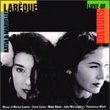
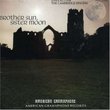
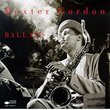

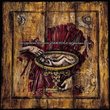



![Across The Universe [Deluxe Edition]](https://nationalbookswap.com/cd//m/51/1251/1241251.jpg)
